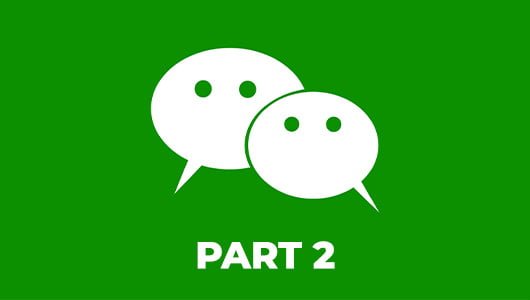In today’s competitive digital landscape, effective marketing stands as a cornerstone of business success. To stay ahead of the curve and deliver personalised experiences to customers, businesses need to leverage the power of marketing technology (MarTech). A MarTech stack, which comprises a set of tools and technologies, is essential for businesses to streamline their marketing efforts, optimise campaigns, and drive growth. In this article, we will explore the reasons why your business needs a MarTech stack.
1. Efficient Data Management
One of the primary benefits of a MarTech stack is its ability to manage and analyse vast amounts of customer data. In today’s data-driven world, businesses have access to a wealth of information about their target audience, their preferences, and their behaviours. However, without a robust MarTech stack, this data may remain scattered and underutilised. A MarTech stack enables businesses to collect, organise, and analyse data from various sources, such as customer relationship management (CRM) systems, social media platforms, and website analytics. This data-driven approach allows marketers to gain valuable insights, make informed decisions, and develop targeted marketing strategies.
Here are the reasons why your business needs a MarTech stack for efficient data management:
Centralised Data Storage and Integration
A MarTech stack allows you to centralise your data storage and integrate various data sources. This means that instead of scattered data across different platforms or departments, you can have a unified view of customer data, marketing analytics, campaign performance, and other relevant metrics. With centralised data, you can make better-informed decisions, identify patterns, and uncover valuable insights to drive marketing strategies.
Improved Data Accessibility and Visibility
A MarTech stack provides businesses with a centralised repository for their marketing data, enabling them to easily access and analyse their data in real-time through a unified dashboard or interface. This eliminates the need for manual data gathering and reduces the risk of errors or data inconsistencies. With improved data accessibility, you can respond quickly to market trends, track campaign performance, and make data-driven decisions promptly.
Enhanced Data Analysis and Reporting
MarTech tools within the stack offer advanced data analysis capabilities, enabling you to extract meaningful insights from your data. These tools often include features like data visualisation, predictive analytics, and machine learning algorithms. By leveraging these capabilities, you can gain a deeper understanding of customer behaviour, preferences, and engagement patterns. This allows you to optimise marketing campaigns, personalise customer experiences, and improve overall performance.
Compliance with Data Privacy Regulations
Data privacy regulations, such as the General Data Protection Regulation (GDPR) and the California Consumer Privacy Act (CCPA), have stringent requirements for data management and protection. A MarTech stack can help your business comply with these regulations by providing features like consent management, data encryption, and secure storage. This ensures that customer data is handled in a compliant and ethical manner, protecting both your business and your customers.
2. Personalised Customer Experiences
Customers today expect personalised experiences from the brands they interact with. A MarTech stack empowers businesses to deliver tailored messages, recommendations, and offers to their customers. By integrating customer data and leveraging tools such as customer relationship management (CRM) systems, marketing automation platforms, and content management systems (CMS), businesses can create personalised journeys for each customer. This level of personalisation enhances customer satisfaction, increases engagement, and ultimately leads to higher conversion rates and customer loyalty.
Here are the reasons why your business needs a MarTech stack to enhance personalised customer experiences:
Comprehensive Customer Data
A MarTech stack enables you to collect, store, and integrate comprehensive customer data from various touchpoints and channels. This includes demographic information, browsing behaviour, purchase history, social media interactions, and more. With a unified view of customer data, you can understand individual preferences, interests, and needs, allowing you to tailor your marketing efforts and create personalised experiences.
Segmentation and Targeting
A MarTech stack provides robust segmentation and targeting capabilities. By leveraging customer data, you can segment your audience into specific groups based on their characteristics, behaviours, or preferences. This allows you to create targeted marketing campaigns that resonate with each segment. Whether it’s through email marketing, personalised website content, or tailored recommendations, a MarTech stack enables you to deliver relevant and customised experiences to different customer segments.
Behavioural Tracking and Analysis
With a MarTech stack, you can track and analyse customer behaviour in real-time providing an understanding of the website interactions, email opens and clicks, social media engagements, and more. By leveraging behavioural tracking, you can gain insights into individual customer preferences and interests. This data helps you personalise interactions and deliver timely and relevant messages, promotions, or recommendations based on their behaviour and preferences.
3. Automation and Streamlining of Marketing Processes
Marketing involves a multitude of tasks, from lead generation and nurturing to campaign execution and performance tracking. A MarTech stack allows businesses to automate and streamline these processes, saving time and effort for marketers. With marketing automation tools, businesses can automate repetitive tasks, such as email marketing, social media posting, and lead scoring. This automation not only increases efficiency but also ensures consistent messaging and improves the overall customer experience.
4. Improved ROI and Performance Tracking
A MarTech stack provides businesses with the tools necessary to track and measure the performance of their marketing efforts. With analytics and reporting capabilities, businesses can gain insights into campaign performance, customer engagement, and conversion rates. This data-driven approach enables marketers to optimise their strategies, identify areas for improvement, and allocate resources effectively. By monitoring key performance indicators (KPIs) and measuring return on investment (ROI), businesses can make data-backed decisions and drive continuous improvement in their marketing initiatives.
5. Integration and Collaboration
A MarTech stack brings together various marketing tools and technologies into a unified ecosystem, promoting integration and collaboration among different teams and departments. By centralising data and processes, businesses can break down silos and facilitate seamless communication between marketing, sales, and customer service teams. This collaboration fosters a holistic approach to marketing, enhances cross-functional alignment, and improves the overall customer experience.
In today’s digital age, businesses cannot afford to overlook the importance of a MarTech stack. It serves as a powerful catalyst for growth, enabling businesses to efficiently manage data, deliver personalised experiences, automate marketing processes, track performance, and promote collaboration. By investing in a MarTech stack, businesses can gain a competitive edge, drive customer engagement, and achieve their marketing objectives more effectively. Embracing MarTech is no longer an option but a necessity for businesses seeking sustainable success in the modern business landscape.



